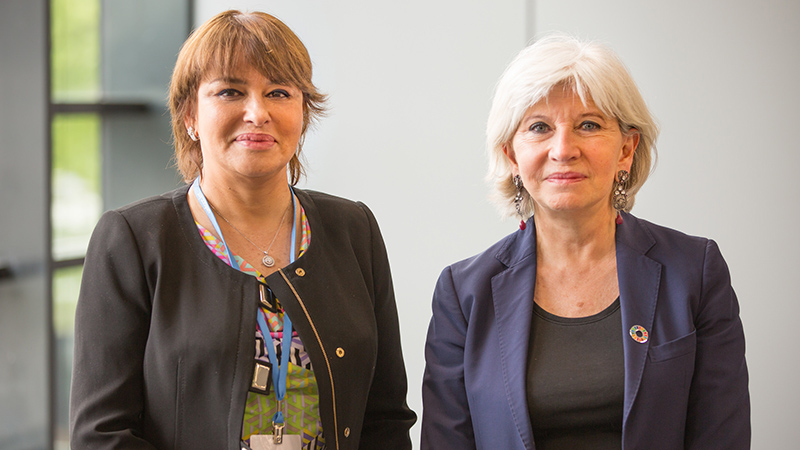Governments, cities and business leaders will be asked to develop plans to radically cut emissions by 2050, under UN proposals released on Monday.
The call to publish “low-emission development strategies” comes at the request of France climate envoy Laurence Tubiana and Morocco environment minister Hakima El Haite.
Voluntary mid-century strategies “will help countries, cities, regions, businesses, investors… understand what it takes to achieve the long-term goals embedded in the Paris Agreement,” the UN’s 2016 “climate champions” write.
“At the national level, it will help to design and implement short-term actions aligned with the long-term objective, avoid lock-in and embark on a truly cost-effective emission reduction pathway.”
Under last December’s Paris climate agreement, 195 countries agreed to target net zero emissions between 2050 and 2100. That requires warming emissions from coal, oil and gas to be eliminated, stored underground or soaked up by widespread tree-planting.
Weekly briefing: Sign up for your essential climate politics update
Most countries only have strategies to cut emissions up to 2025 or 2030, target years for the vast majority of national climate plans submitted to the UN.
The US, China and France have already committed to working on 2050 plans through 2016, but uptake on what was one of the signal agreements in the UN’s flagship climate deal has been slow.
“We will be calling for contributions from actors in all sectors to generate solutions that can help governments to implement what they have committed to and to extend them further,” add Tubiana and Haite.
Report: World leaders commit to clean energy targets in San Francisco
The strategy document underlines fears that global momentum to tackle climate change has slowed in the wake of the Paris climate agreement.
Negotiations are now focused on developing a set of rules for the deal, which could come into force as early as 2017 if it gets formal approval from 55 countries covering 55% of emissions.
“There is a need to quick-start implementation with a sense of urgency and ambition; create an interface with the real world and solutions, particularly the involvement of non-Party stakeholders; and maintain the political momentum,” write the pair.
